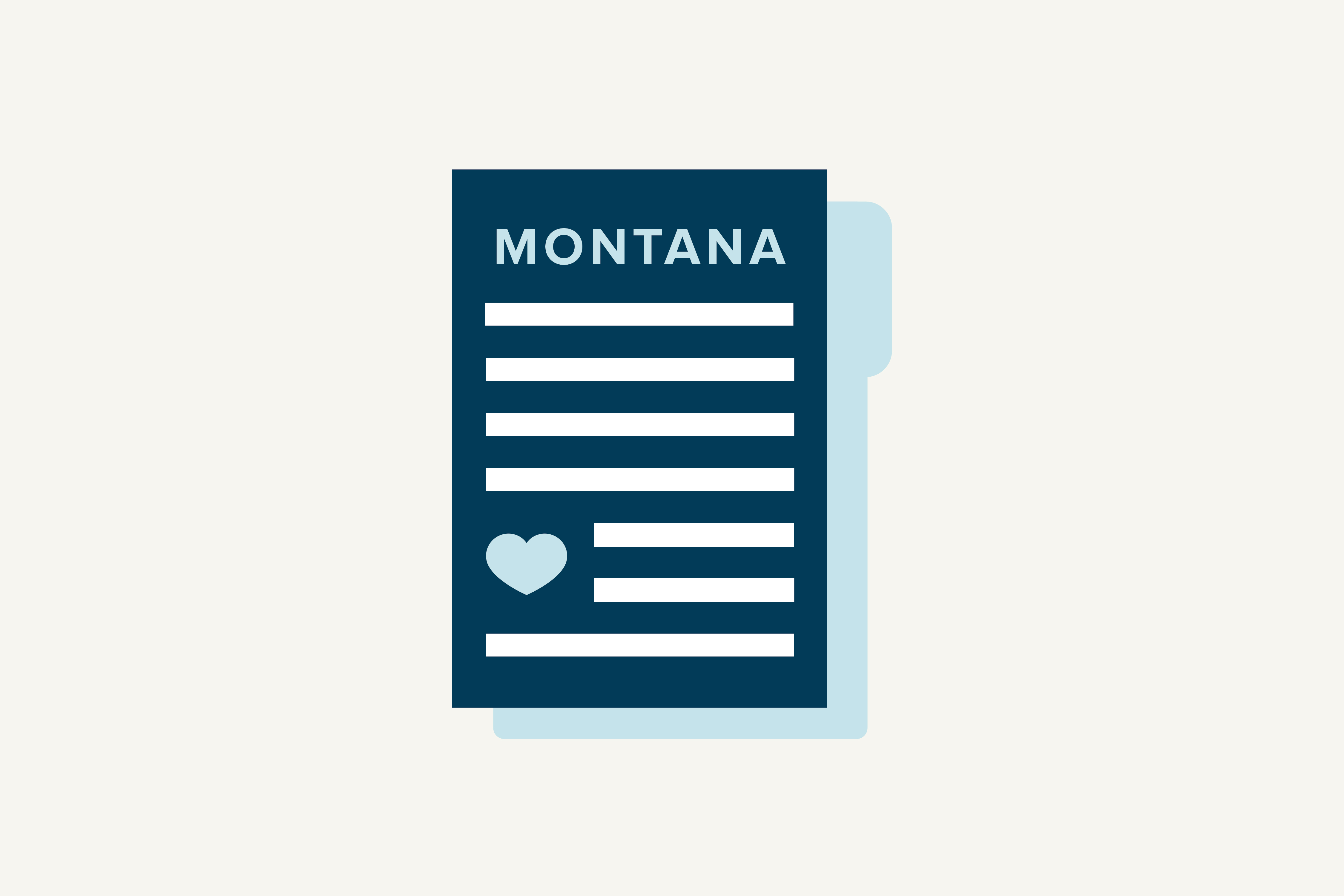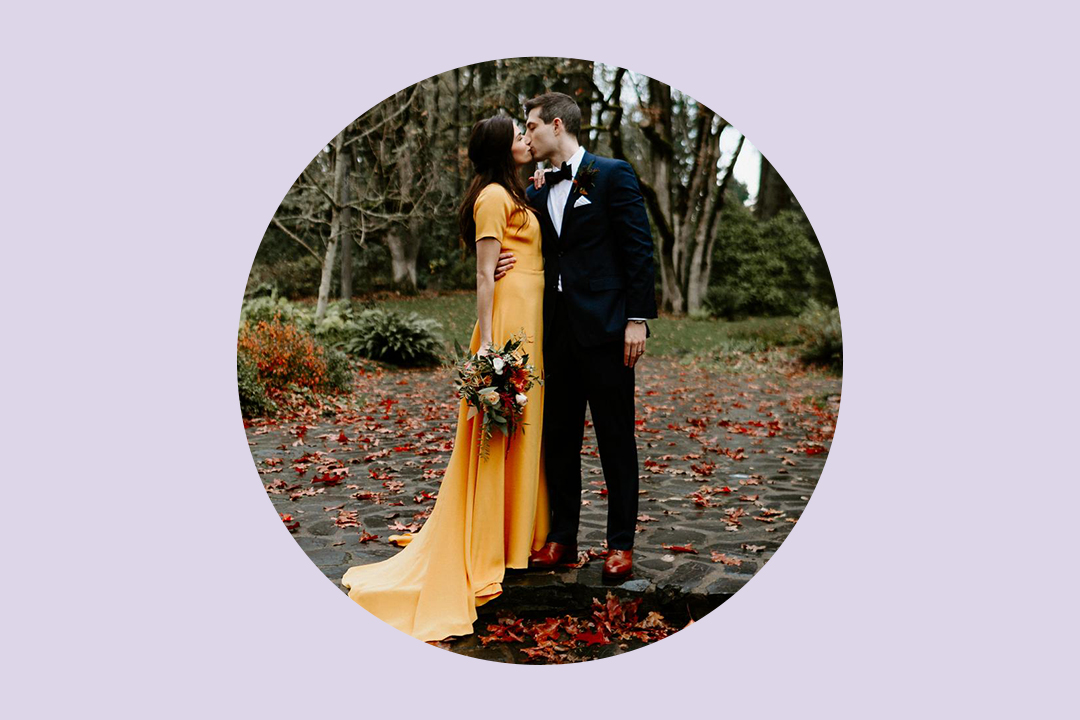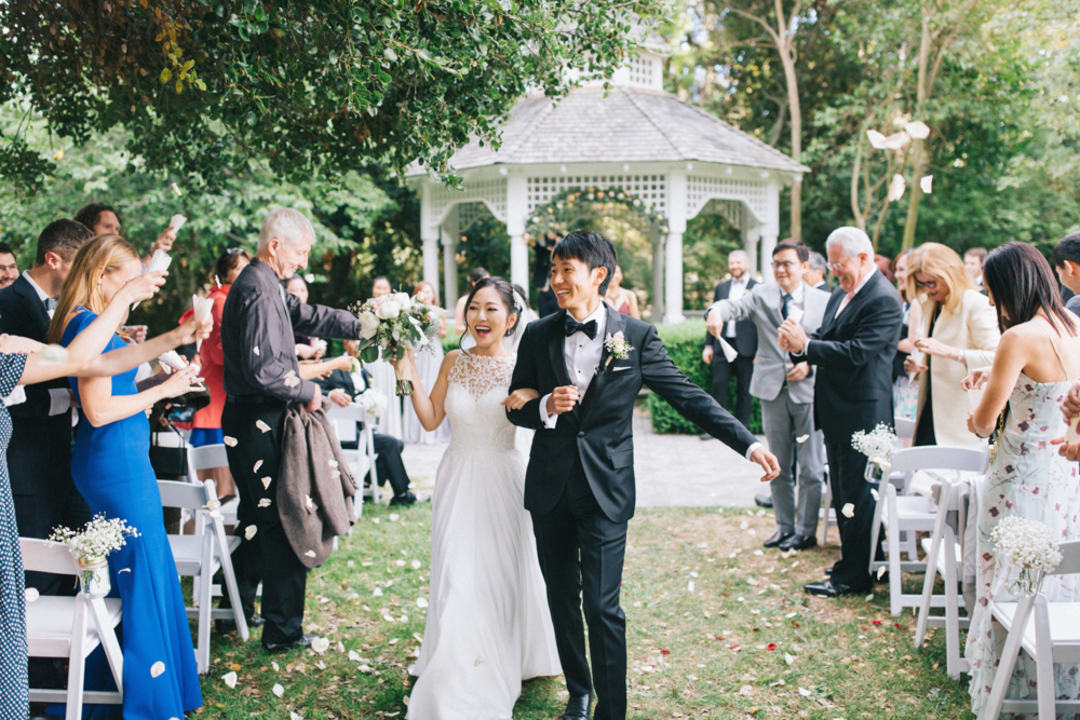- Expert advice/
- Wedding planning 101/
- Legal/
- Montana Marriage Laws + 6 Things To Keep In Mind
- Legal
Montana Marriage Laws + 6 Things To Keep In Mind
The great state of Montana is a gorgeous place to say your vows. But first, check out Zola’s guide to Montana marriage licenses.
Last updated August 21, 2024

The First Look ✨
- Montana couples must have their marriage license signed and returned to the clerk’s office that issued the license within 30 days of its issuance in order to be registered with the State.
- The cost of a marriage license in the state of Montana is $53. There is no waiting period for a marriage license in the state of Montana and no appointment is needed to apply.
When Douglas Chadwick coined Montana the Last Best Place, he may have been referring to the sprawling Bob Marshall wilderness—showcasing the most beautiful waterfalls, lakes, and thick forests in Big Sky country—but the phrase certainly extends to its station as the Just Plain Best Place to Get Married.
In one respect, Montana isn’t any different from the other states—it has marriage laws that are unique to its counties. Let’s take a look at everything you need to know about how to plan a wedding and get legally married in Montana:
Marriage Laws and Marriage Requirements in Montana
The steps taken to legally represent that commitment are very specific and there are more than a few requirements that have to be met before anything is written in stone. So don’t wait any longer. Before you send out your stylish invitations from Zola, make sure you’re checking all the boxes to get your Montana marriage signed and sealed.
-
Marriage License: A marriage license is a document that authorizes a couple to marry. It is the essential piece of paper that denotes the approval of your union with your significant other in the eyes of the state and the country in which the service is performed. In Montana, marriage licenses can be obtained at the Clerk of District Court’s Office, and must be signed by the marrying parties as well as two witnesses.
-
Residency Requirements: There is no residency requirement in order to be married in the state of Montana. The only necessary geographical specification in order to have a Montana wedding is to make sure that the wedding takes place in Montana.
-
Witnesses: Two witnesses are required to complete your marriage license. Those witnesses will also need to sign the marriage license.
-
Legal Age of Marriage: In the state of Montana, the legal age of marriage is 18 years. However, with parental consent, individuals aged 16 and 17 can marry. In order to complete this process legally, they must obtain:
- Parental permission in the form of a signature on the application from the clerk’s office, not the online form.
- Proof of the couple attending at least two counseling sessions prior to applying.
- Judicial approval.
- The proper paperwork from the clerk’s office and said clerk’s specific instructions on how to properly proceed.
-
Officiant Qualifications: In order to be considered a legally binding ceremony, a Montana marriage must be solemnized by a qualified individual. Those holding an office or title that is considered qualifying are as follows:
- A member of the clergy (out-of-state clergy need not be registered in Montana)
- An active or retired Judge of a court of record
- A public official whose powers include the solemnization of marriages
- A mayor, city judge, of justice of the peace
- A tribal judge
- A notary public
-
Note: The officiant does not need to provide his or her credentials to the Clerk of the District Court—and even if the person solemnizing the marriage was not legally qualified to do so, the marriage is still valid as long as one or both parties being married believed that person to be qualified.
-
Common Law Marriage: A common law marriage regards a partnership that foregoes a legal ceremony or the signing of a marriage contract while still maintaining the emotional and legal implications of marriage. A couple that lives together may be common law married. The three qualifications of a common law marriage in the state of Montana are as follows:
-
Both parties must be competent to marry. Meaning, both parties are old enough to marry and are not already legally married to another individual.
-
Both parties must agree that they are married by an intention to be legally married later, and with proof of that commitment in the form of an oath or pledge of marriage, rings or other jewelry, or any other decorations or signs of marriage.
-
Both parties must live together and present themselves as married. This includes interacting with the community as a married couple, owning property together, filing taxes together, and whether others in their community believe that the couple is married.
-
Domestic Partnerships: Although relatively limited in respect to the rights afforded by marriage, the state of Montana recognizes domestic partnership relationships that do grant some property rights above those afforded to undocumented couples, such as formal trust agreements.
-
Marriage by Proxy: This service is only offered to couples where one or both parties are members of the armed forces, on federal active duty, or a resident of Montana at the time of application. One party or their legal representative must appear before the clerk of the court and pay the marriage license fee. If a party (or both) is unable to be present at the solemnization, they can authorize (in writing) a third person to act as proxy. If the person solemnizing the marriage has consented to the union, but is unable to be present, they may also solemnize the marriage by proxy.
Montana’s Marriage License Application Process
Every state in America has its own collection of government documents and properly completed paperwork that are deemed necessary in order to finalize the acquisition of a legally valid marriage contract. Listed below are those essential steps to make sure your Montana marriage moves forward without a hitch:
1. Documents Required
Montana has plenty of documents you’ll need to submit in order to begin the marriage license procedure. The following list states precisely what each spouse must submit independently:
- Picture ID
- Proof of age
- Valid driver’s license
- Military ID (if applicable)
- Passport (if applicable)
- Social Security number
- Birth certificate (In the absence of said document, each spouse must submit information regarding their birthplace; including the city, county, state, or foreign country.)
2. Fees
In the state of Montana, a marriage license fee is $53.
3. Waiting Period
There is no waiting period to observe after you receive your marriage license. Submit your application to the Clerk of District Court’s Office during its operating hours of 8:00 a.m. through 5:00 p.m.. No appointments are necessary; however, it should be stated that marriage license applications and declarations of marriage are not processed after 4:30 p.m., so plan accordingly.
5. Expiration of License
Montana marriage licenses are effective immediately and remain valid for 180 days from the date of issuance.
6. Registering the Marriage License
Within 30 days after the ceremony, however, the license must be returned to the clerk’s office that issued the license in order to be officially registered with the state.
Special Marriage Considerations in Montana
Despite sharing many elements of the marriage process with other states, there are still a litany of ways in which the Montana marriage process is unique.
-
Getting Certified Copies: In Montana, certified copies of marriage certificates can be obtained in-person at the Clerk District Court’s Office, by written request, or emailed. A regular copy costs $5. A certified copy is $7.
-
Invalid Marriages: There are certain unions that the state of Montana considers to be non-binding. The following list states the circumstances that define such unions:
-
A marriage entered into prior to the dissolution of an earlier marriage by either of the two parties.
-
A marriage between an ancestor and descendant or a brother and sister, including half-siblings and first cousins.
-
A marriage between an uncle and a niece or between an aunt and a nephew, including half-blood relations.
-
Frequently Asked Questions About Getting Married in Montana
When it comes to wedding planning logistics, it’s normal to have plenty of questions. Fortunately, the wedding experts at Zola are always happy to help turn clouds of confusion into big, clear, sunny Montana skies:
I’m Getting Married in Montana But I Live in a Different State. Where Do I File My License?
If you’re planning to marry in Montana, file for marriage in Montana. Your marriage is bound to the location of the ceremony and the county clerk’s office where you filed. And remember: The marriage license has to be returned to the same clerk’s office that issued the license in the first place.
When Should I Start the Marriage Application Process?
Because a Montana marriage license is only valid for 180 days after its issuance, plan ahead—between two and three months before your wedding day—to make sure your application is still valid by the time your big day rolls around.
How Soon Can You Get Married After Receiving Your Marriage License?
After you receive your marriage license, you have 180 days until the license becomes invalid. As long as no one gets cold feet before the ceremony, a signed marriage license simply has to be returned to that same clerk’s office that issued it originally in order to be registered.
What’s the Difference Between a Marriage License and a Marriage Certificate?
A marriage license and a marriage certificate are two very different documents:
-
Marriage License: The marriage license is the legally binding document that permits you by the power vested in the state (of Montana, in this case) to pronounce you married. This is the document that requires so many signatures and must be submitted to the clerk’s office.
-
Marriage Certificate: The marriage certificate is more like a diploma—it shows that you have completed your marriage ceremony and stands to recognize your union in the eyes of the law as physical evidence that it took place.
Zola: The Secret to Your Dream Montana Wedding
Here at Zola, it’s our mission to make planning a piece of (wedding) cake. From the engagement photos to walking down the aisle, our wedding experts are here for you every step of the way.
We offer a number of helpful wedding planning tools, like online guest lists and a wedding registry. Couples can also utilize our gorgeous save-the-date designs to send to their loved ones.
Planning a wedding takes time, but that doesn’t mean it has to be hard. Ditch the stress and jump straight to the celebration. Start planning your wedding the modern way—with Zola!
Up next for you

34 Best Honeymoon Destinations for 2026
List
Plan your ideal honeymoon with our curated destinations list. From breathtaking beaches to charming cities, discover the perfect romantic escape.

Average Cost of Weddings in 2026: Vendor Price Guide
Advice
Average cost of weddings in 2026: See national averages for venues at $8,573 and catering at $6,927, plus key vendor costs to plan your budget.

25 Outdoor Wedding Ideas for Fall We Can’t Get Enough Of
Wedding Style
Get creative with these fall wedding ideas for the outdoor celebration of your dreams! See our favorite 25 wedding ideas inspired by autumn here.

Most Popular Types of Wedding Venues
Venues
Finding the perfect wedding venue can be a challenge. We outlined a few popular types of wedding venues to help you find one that's right for you.
Featured

How to Plan a Wedding: A Step-by-Step Guide
How-To
We’ll walk you through the steps of online wedding planning, highlighting all of Zola’s incredibly easy and intuitive online wedding planning tools that’ll make planning for the big day more fun and less frustrating.

Top 15 Places to Go to For a Bachelorette Party
Inspiration
Planning a destination bachelorette party? Check out these ideas for the ultimate girls trip before you say “I do.” Read on to get inspired.

34 Best Honeymoon Destinations for 2026
List
Plan your ideal honeymoon with our curated destinations list. From breathtaking beaches to charming cities, discover the perfect romantic escape.

50 Unique Marriage Proposal Ideas [+ Printables]
How-To
Thinking of popping the question? Arrange the perfect proposal for your partner with these creative ideas. From romantic to adventurous, there's one for you!
- Expert advice/
- Wedding planning 101/
- Legal/
- Montana Marriage Laws + 6 Things To Keep In Mind
Find even more wedding ideas, inspo, tips, and tricks
We’ve got wedding planning advice on everything from save the dates to wedding cakes.
